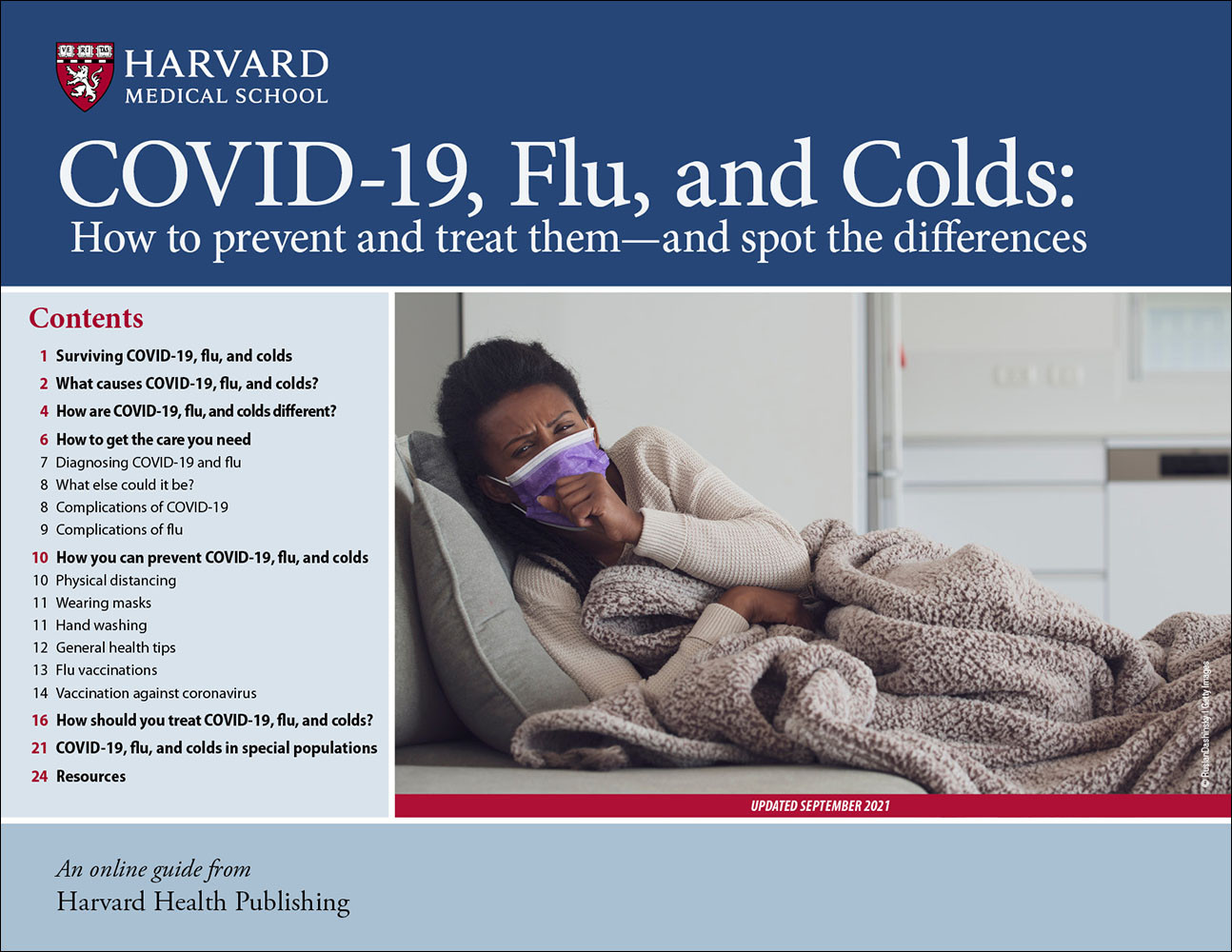Smell disorders: When your sense of smell goes astray

We spend our days interacting with the world around us through our senses of sight, sound, and touch. But anyone who has developed complete nasal obstruction from an infection or severe allergies has experienced what it's like to be without one of our most basic senses: our sense of smell.
The many functions of smell
In other animals, the sense of smell is absolutely crucial for survival, reproduction, and rearing of young. Although humans can survive without smell, research has shown that losing the sense of smell negatively impacts quality of life, even driving some people toward clinical depression. Just as other animals depend on the sense of smell as an alarm system for danger, we also depend on smell to warn us of the hazards of smoke from a fire, natural gas leaks in the home, and spoiled food.
On a daily basis, smell rounds out our experiences and is often an integral part of our memory of events from years gone by. Memories of a perfume worn by your spouse or the bread being baked at your grandmother's house when you were a child last for decades, and are often intricately tied in with strong emotions.
The flavor of a meal depends heavily on the ability to smell, and without it, eating is just a bland means to dispel hunger. With so much of our social activity involving congregating at restaurants, bars, and cafes, it is understandable how someone losing the sense of smell can develop a sense of alienation.
Impact of smell disorders
Smell disorders affect 19% of the population over the age of 20 and 25% of the population over 53. If smell loss from aging alone is considered, one out of eight people between 53 and 91 will be affected over a five-year period. The detrimental effect of smell loss on flavor of food could significantly impact the elderly population, where diet and nutrition are already often a concern.
The sense of smell (olfaction) is dependent on millions of specialized nerve cells that are located in a deep protected recess high in the nasal cavity. Remarkably, these nerve cells normally die and are replaced throughout our lifetime. Therefore, the system has the capacity to repair itself after injury, but this isn't always possible or complete.
The most common causes of prolonged smell loss occur as a result of COVID-19,an upper respiratory infection, head injury, chronic sinus disease, and aging. However, other conditions such as Alzheimer's disease, Parkinson's disease, and tumors can be associated with smell loss.
In some cases, the loss of smell is complete (anosmia), while in other cases there is only a partial loss (hyposmia). In many instances where smell loss occurs, remaining smells are distorted. The distortions are either experienced as odors smelling dramatically different from what was remembered (parosmia) or smelling an odor that isn't present (phantosmia).
Perhaps if they were pleasant, these distortions of smell might not be as distressful. However, in almost all instances, the experienced smells are unpleasant, with "smoke," "swamp-like," "musty," "garbage," or "chemical-like" among some very common descriptions. The odor is usually hard for people to describe, since it is not like anything they have experienced before.
Treating smell disorders
In cases where smell loss results from sinus disease, treating the sinus condition may lead to improvement. Just using a nasal steroid inhaler could make a difference. Sometimes surgery is required to reduce the obstruction of odors to the sensory nerve cells. Sinus disease usually requires long-term management, and fluctuations in the ability to smell are common.
In contrast to chronic sinus inflammation, there are no specific medical treatments for loss of smell resulting from COVID, head injury, upper respiratory infection, or aging. The natural ability of the olfactory system to repair itself allows for some patients to regain the sense of smell after a respiratory infection-related loss or head injury. This recovery can take over a year and can be so gradual that people have difficulty recognizing the change. Predicting whether recovery will occur in an individual is usually not possible, but overall, any improvement that occurs within a one-year period increases the chances of recovery.
In recent years, "smell training" has shown benefit for some people with certain smell disorders, suggests a study published online Nov. 19, 2020, by the journal The Laryngoscope. The participants sniffed odors from their kit for 30 seconds, twice a day. After following this routine for six months, they improved their overall sense of smell as well as whichever smell disorder they had. The researchers speculated that the training helped smell pathways recover and regenerate.
If you experience any persistent change in your sense of smell, visit your doctor for an evaluation. Some rare forms of smell disorders may result from tumors in the brain, neurodegenerative disease, or infection. These conditions should be diagnosed expediently for proper management and treatment. In addition, your doctor should talk to you about risks, such as depression and nutritional concerns that may stem from loss of smell.
Although therapies are currently lacking, there is hope for future breakthroughs. Ongoing scientific work is investigating how stem cells in the nose replace dying olfactory nerve cells. In the future, it will be possible to add medication in the nose to trigger these cells to make more neurons or replace missing stem cells to regenerate the neurons. Or a device might electrically stimulate a sensation of smell using an artificial implant.
About the Author

Eric Holbrook, MD, Contributor
Disclaimer:
As a service to our readers, Harvard Health Publishing provides access to our library of archived content. Please note the date of last review or update on all articles.
No content on this site, regardless of date, should ever be used as a substitute for direct medical advice from your doctor or other qualified clinician.
















